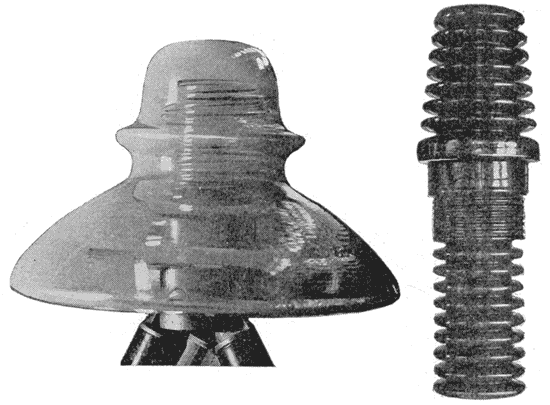[Trade Journal]
Publication: Electrical World
New York, NY, United States
vol. 65, no. 22, p. 1429, col. 2
Insulator Tests
Insulators of a special composition material called "boro-silicon," which was described in the Electrical World of April 3, have recently been put under tests, and the results obtained are reported as follows:
Four 11-in. suspension units were tested, and each unit was subjected to an increasing mechanical strain (pull) starting at 6000 lb. and ascending in steps of 1000 lb. and 2000 lb. At the same time, the insulators were subjected to a potential of 60,000 volts. None of the units punctured during the tests.
Unit No. 1 stood a mechanical electrical test up to 12,000 lb. without any sign of break-down. Unit No. 2 stood a mechanical test up to 11,000 lb. Just after 12,000 lb. had been applied the unit pulled apart, shearing the material evenly in a cleavage plane at an angle about 60 deg. from the vertical and reaching a point about 0.5 in. from the bottom of the cap. Unit No. 3 stood a mechanical-electrical test up to an including 12,000 lb. Unit No. 4 tested satisfactorily at 11,000 lb., but upon the application of 12,000 lb. the eye-bolt pulled out of the cement of the insulator. The unit was still good electrically. Three of the units were subsequently given an electrical test only, and it was found that a dry flashover of one disk took place at a pressure of 115,000 volts, and of two glass disks in series at 198,000 volts. All the insulators were tested under oil without puncture. The maximum voltage obtainable, owing to leakage and flashing around the insulator or to the containing vessel, was, however, only 170,000 volts, and none of the units were punctured at this voltage. The insulators were made by Fred M. Locke, Victor, N. Y.
 |
| Figs. 1 and 2 - Insulator and Bushing of Composition Material Called "Boro-Silicon" |
